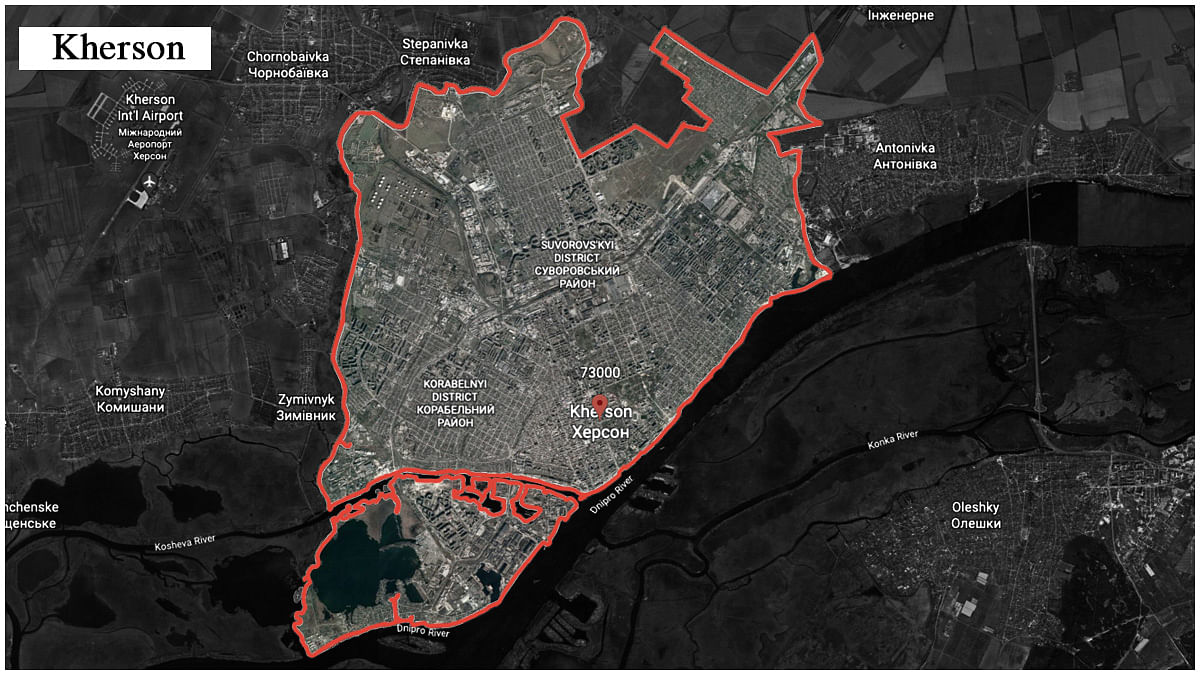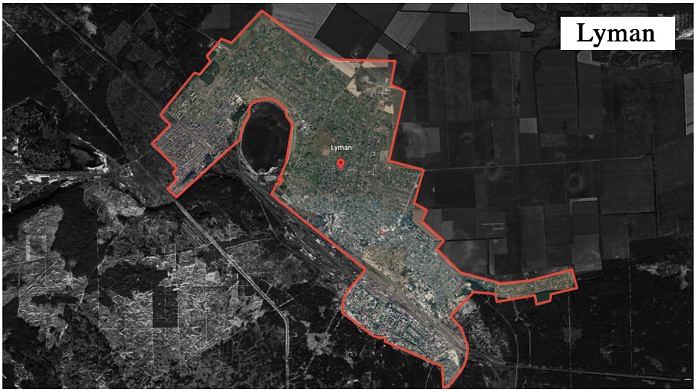New Delhi: Ukraine experienced significant territorial losses and launched a limited counteroffensive over the weekend, amid NATO chief Jens Stoltenberg’s remarks that the Western alliance should “dig in” for a protracted conflict.
In a major battlefield development, Russia’s defence ministry declared Saturday that the eastern-Ukrainian town of Lyman had fallen to their forces. Lyman serves as a railway hub in Ukraine, west of Severodonetsk.
“As a result of the joint actions of the people’s militia units of the Donetsk People’s Republic and the Russian armed forces, the city of Krasny Liman was completely liberated from Ukrainian nationalists,” Russian Defense Ministry spokesman Igor Konashenkov said in a statement.
Further, the Ukrainian forces carried out Sunday a limited counterattack near the Kherson-Mykolaiv border with Crimea, in the south of Ukraine.

Railway hub Lyman now under ‘Russian control’
Russian and Ukrainian forces had been sparring over Lyman for several days. Its capture on Saturday marks a culmination of a week-long conflict over the town. According to Kremlin’s mouthpiece Russia Today, “The storming of Liman lasted less than a week, with Russian forces entering the city on May 23”.
Alexey Arestovych, a key adviser to Ukrainian President Volodymyr Zelensky, acknowledged the loss in a livestream Thursday.
“We have lost the town of Lyman,” Arestovych said.
Russian military correspondent Alexander Kots, in a Telegram post on 27 May, shared a video of Russian soldiers in the city shortly afterward, with the caption “Liman is ours.”
“Ukrainian troops fled to the west and southwest while covering their retreat with artillery fire,” Kots wrote in the channel.
An intelligence update from Britian’s Defence Ministry said the capture of Lyman is “likely a preliminary operation for the next stage of Russia’s Donbas offensive.”
“Lyman is strategically important because it is the site of a major railway junction, and also gives access to important rail and road bridges over the Siverskyy Donets River,” the UK’s Ministry of Defence tweet stated.
(2/7) Lyman is strategically important because it is the site of a major railway junction, and also gives access to important rail and road bridges over the Siverskyy Donets River.
— Ministry of Defence ?? (@DefenceHQ) May 28, 2022
The confirmed capture of Lyman thus represents a debilitating setback for a country whose railway system suffered from under-investment, infrastructural bottlenecks and in need of reform long before the start of the war.
“Most governments regularly undertake major investment in infrastructure, but the Ukrainian government has overlooked the country’s rail infrastructure for years. Even so, they charge about one quarter of [Ukrainian Railways’] annual revenues in taxes, although the company barely breaks even,” Adomas Audickas, a member of the supervisory board of Ukrainian Railways, had written for think tank Atlantic Council in 2021.
Kherson counterattack, Russian authorities deny
Meanwhile, Ukraine’s southern coast northwest of the Crimean border has witnessed an attempted counteroffensive against Russia.
In a Facebook post, the Ukrainian General Staff claimed the Russian forces were trying to retake positions in Andriivka, Bilohirka, and Bila Krynytsia in the Kherson Oblast. Thereby, reflecting that Ukraine’s counteroffensives in these areas of the Oblast had brought some success.
The Institute for the Study of War (ISW), a US think tank, in its assessment on 29 May said, “while the Ukrainian counterattack does not appear likely to retake substantial territory in the near term, it will likely disrupt Russian operations and potentially force Russia to deploy reinforcements to the Kherson region, which is predominantly held by sub-standard units.”
Russia had occupied parts of Kherson within the early days of the invasion before confirming a full capture on 2 March, in a situation that civilians described to Al Jazeera as apparent surrendering and abandonment by the Ukrainian armed forces.
In light of Ukraine’s fightback to retake Kherson near the end of May, the city’s residents who were “lucky” enough to escape told The Guardian about life under Russian occupation, civilian killings and participation in anti-war protests.
“Kherson, hold on! We’re close!” Ukraine’s general staff tweeted early Sunday to boost morale, while the deputy head of Russian civil-military administration that controls Kherson after ousting mayor Ihor Kolykhaiev has denied any media reports of early successes of Ukraine’s counteroffensive.
“Zelenskyy and other officials keep on declaring: ‘We are fine, we are winning.’ But this is a lie…The Kherson region is denazified forever. It is Russian land,” said Kirill Stremousov, deputy head of the Kherson regional administration appointed by Russia, on his Telegram channel.
Also read: They want to ‘burn’ Donbas — Zelenskyy calls for more arms as Russian forces pound East Ukraine



